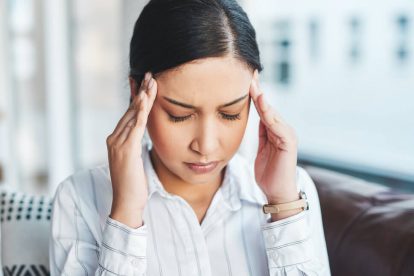Anxious to Cope: How to Effectively Cope with Anxiety

Anxiety, as a feeling, is a typical human feeling that functions to alert us to situations that could be or are dangerous. For example, anxiety functioned as a survival mechanism for early man when they heard sounds that indicated that a predator was nearby. In our present society, anxiety is an important reaction to a danger situation such as standing too close to the edge of a building or when we see a ball roll into the street from between two parked cars. Thus, anxiety is an important emotion in our feelings toolbox, but can become an overwhelming variable in some peoples’ lives that leaves them unable to cope with the tasks of daily living. When anxiety becomes overwhelming and prevents an individual from living a healthy life, we will often begin to consider the diagnosis of an anxiety disorder. People with anxiety disorder often feel frustrated because they struggle to feel understood and often will withdraw from those around them because of the powerful feelings of anxiety that they experience and cannot control. In consideration of the number of people that struggle with overwhelming anxiety, we compiled a few ways to understand and cope with anxiety in an adaptive manner.
Reason 1: Anxiety Is Seen as “Natural”
Understanding the difference between typical and atypical anxiety is important. One way to consider the difference is to review your daily activities and try to determine if there has been a significant decrease either in the number of activities or your enjoyment of your activities since you began to experience the symptoms of anxiety.
Reason 2: Anxiety Can Be Invisible
Symptoms of anxiety can often be masked or denied through rationalizing the feelings or looking online for materials that normalize the anxiety rather than effectively treating the symptoms and causes. At Bridges to Recovery, we work with individuals daily in helping them understand their anxiety not only as a symptom but also as a indicator of a need for more effective skills and tools to manage their life in a more rewarding fashion.
Reason 3: Substance use and abuse
Some individuals will turn to drugs and alcohol as a way of managing their feelings of anxiety. As such, they find that rather than effectively managing their anxiety, they are becoming dependent upon substances to control their life resulting in increased anxiety and resulting dependency issues. At Bridges to Recovery, the goal of treatment is to provide the skills necessary to effectively manage feelings rather than developing a reliance upon addictive substances.
Reason 4: People Are Uneducated about Treatment Options
Despite efforts to combat stigma, anxiety and depression remain stigmatized in several circles. The words “crazy,” “worrywart,” or “pitiful” are dropped into everyday conversation far too often, making people with legitimate concerns withdraw. Although a person with anxiety may have a supportive environment, he or she may also fear treatment or think there are no options. Fortunately, most professionals are used to this mind-set and can help. Psychotherapy, meditation, and breathing exercises may reduce anxiety.
Reason 5: People Give Up Easily
Since anxiety disorder is more generalized than many mental illnesses, finding the right treatment can take a great deal of time. After they begin treatment, some patients become frustrated that they aren’t “getting better” more quickly. They give up, rationalizing, “I’ll always be this way.” Anxiety treatment is much like treatment for an ongoing illness like asthma – patients need to stick to the plan no matter the circumstances, be vigilant about their treatment plan’s components, and be patient with themselves while improving.






